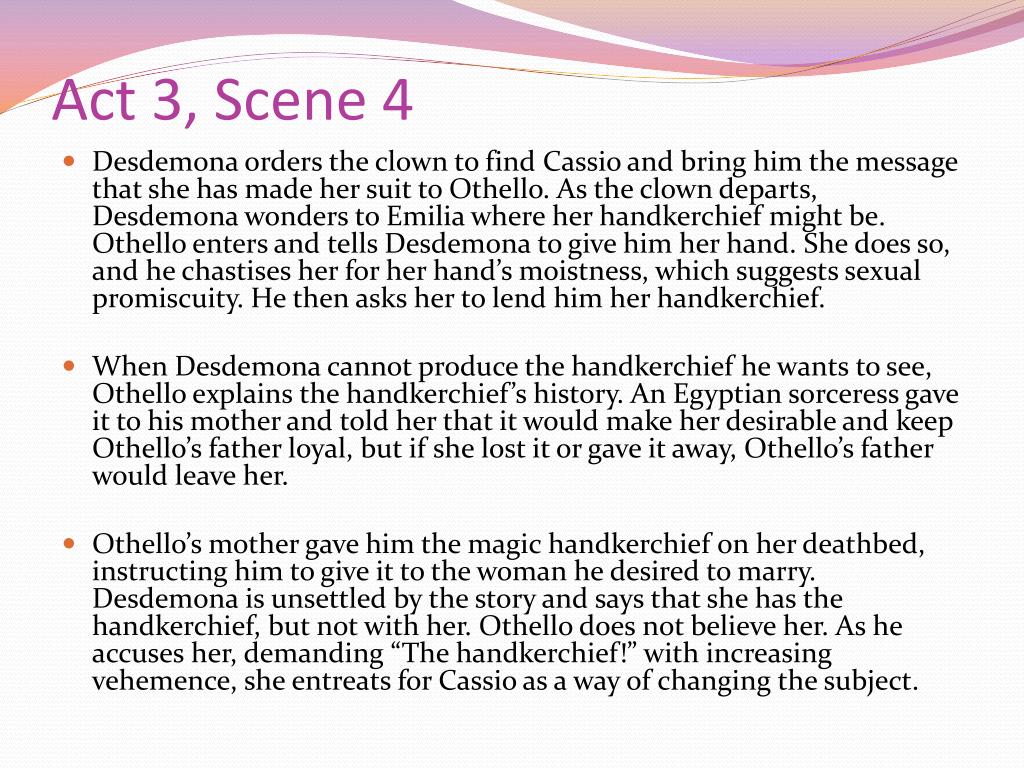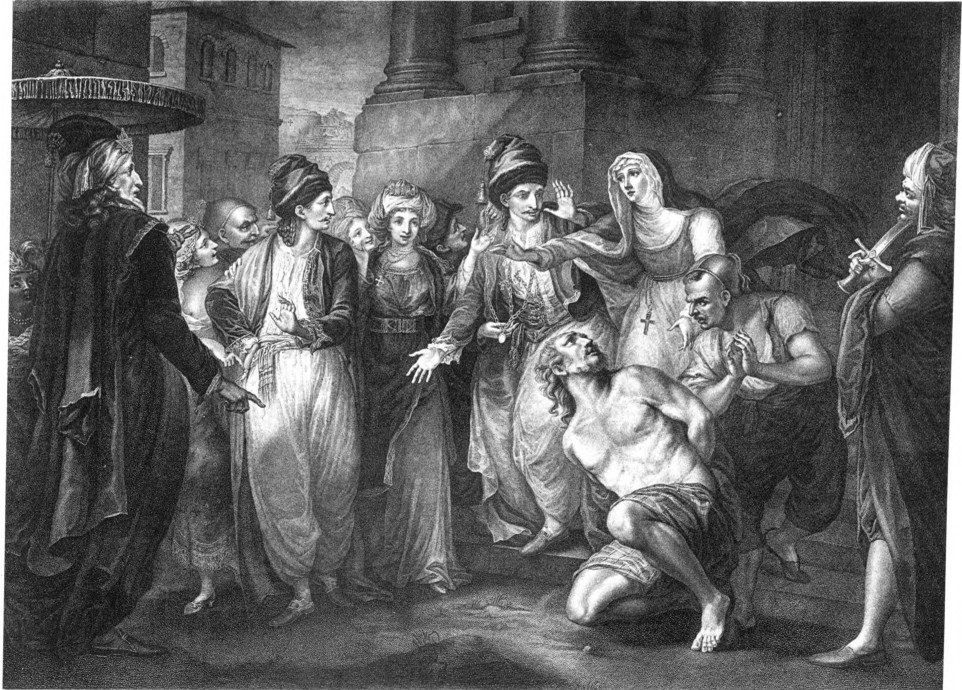
This is hinted at when Othello tells Desdemona how the red thread of the strawberries were dyed with the use of blood from “maiden’s hearts”, which could be representative of Desdemona’s chastity and faithfulness towards Othello as well as her purity since the red, dyed colour of the strawberries against the white background of the handkerchief could represent the blood traditionally found on bedsheets after the loss of one’s virginity. In addition, Iago also does not want to expose himself to be the person manipulating the entire situation, therefore, Iago also needs time for him to make it appear as though Othello have come to the idea that Desdemona is cheating on him through his own accord and not through Iago’s false words.Įxplain the importance of Desdemona’s handkerchief (to the play).ĭesdemona’s handkerchief is important to the play as its white colour and the embroidery of the strawberries on the handkerchief demonstrates symbols of innocence, purity, and chasteness. Moreover, Iago also requires his time and small, seemingly incriminating pieces of evidence in order to slowly alienate Othello from Desdemona and Cassio and become more reliant on Iago’s words. Therefore, Iago requires time to plant the seed of mistrust and suspicion towards Desdemona and Cassio’s relationship along with pieces of swaying evidence in order for Othello to not immediately dismiss Iago’s ideas as incredulous. Iago must take his time to convince Othello about Desdemona and Cassio because prior to Iago’s influence, Othello had a lot of respect and affection for both Desdemona and Cassio. Why must Iago take his time to convince Othello about Desdemona and Cassio? Therefore, effectively demonstrating the contrast between Desdemona and Emilia’s perceptions and Desdemona’s naivety towards Othello’s actions.

Yet when Desdemona is talking about men and the change in Othello’s attitude in the following lines, she reasons, “Men’s natures wrangle with inferior things, though great ones are their object … Nay, we must think men are not gods, nor of them look for such observances as fit the bridal” (3.4.165-71), explaining Othello’s behaviour as a result for a bigger worry, and that woman should not expect their husbands to always behave as they had on their wedding nights.

#Othello act 3 scene 3 full
This can be demonstrated when Emilia states, “They are all but stomachs, and we all but food they eat us hungerly, and when they are full they belch us” (3.4.121-3), showing her cynical perception towards men’s intentions likely caused by the experiences she has endured throughout her years of marriage to Iago and his demands for her aid in his plots. The contrast between Desdemona and Emilia’s views can be shown as Emilia’s thoughts towards men’s behaviour are proven to be much more cynical and realistic about the character that her husband is while Desdemona’s views are still much more naive and oblivious to the change in Othello’s character. Within this scene, Desdemona and Emilia’s views on men are shown as Othello becomes more and more jealous and convinced of Desdemona’s unfaithfulness. How are they the same? How do they differ?

Specifically, look at lines 120-123 and lines 161-175. However, this later becomes ironic as we see Othello consumed with irrational jealousy due to Iago’s deception and manipulation, and later witness the murder of innocent Desdemona towards the end of the play as a direct result from his jealous rage.Ĭompare Desdemona and Emilia’s views on men. How are Desdemona’s words in lines 31-32 ironic?ĭesdemona’s words in lines 31-32 are ironic as she states, “Who he? I think the sun where he was born drew all such humors from him” (3.4.31-3), implying that the sun where Othello was born had drawn all emotions such as jealousy from him or that Othello is incapable of jealousy. I chose this image because it was a pivotal point within the play as it gave Iago the chance to get his hands on one of the main pieces of evidence which he would later be able to use to convince Othello of Desdemona’s infidelity and affair with Cassio. This then causes Emilia to pick up the handkerchief and hand it over to Iago as per his continuous requests. This image depicts the scene where Othello and Desdemona leave for dinner without realizing that Desdemona’s handkerchief had fallen to the ground.


 0 kommentar(er)
0 kommentar(er)
